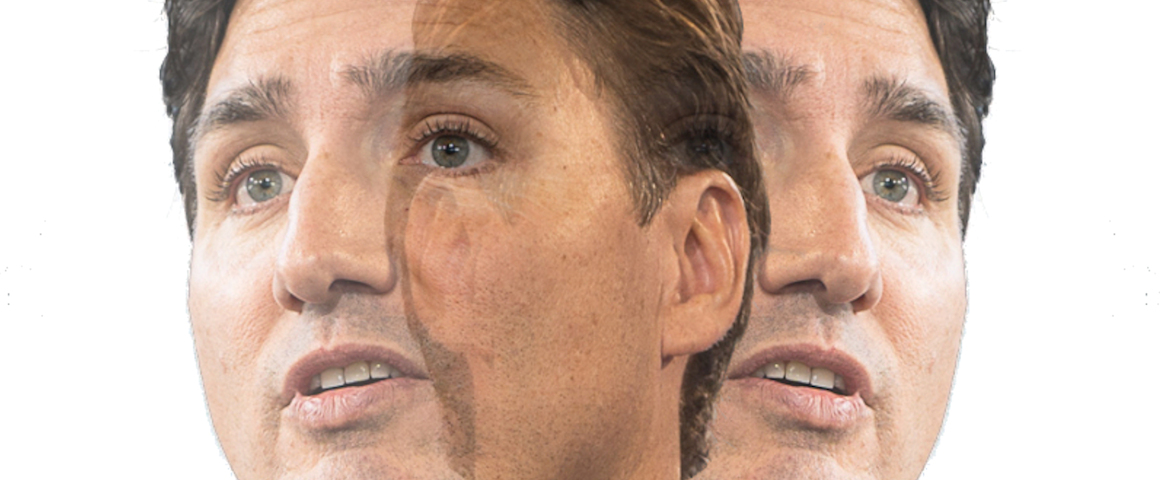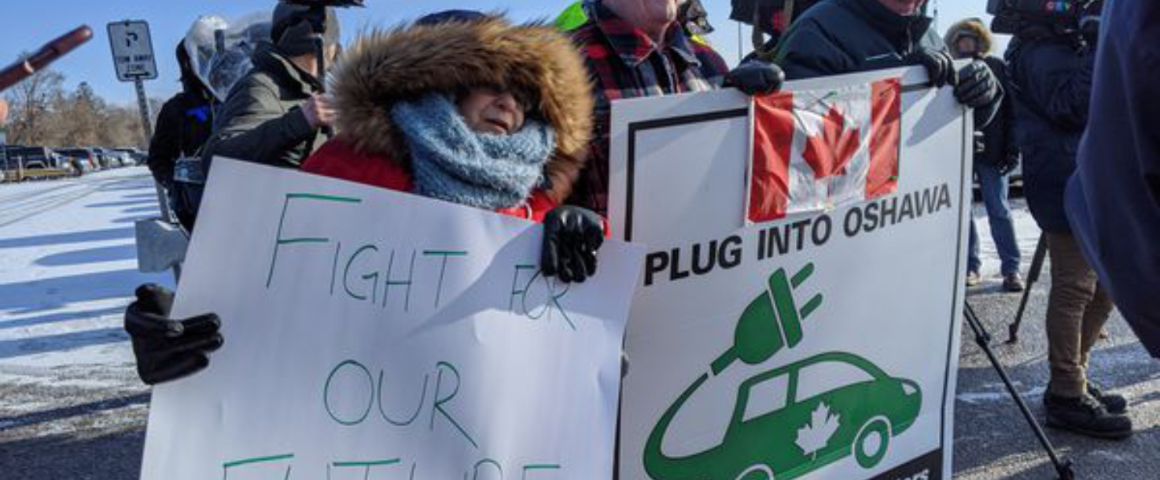Now that the votes are all counted, it’s clear that once again a majority of electors voted defensively, using their ballots to stave off a Big Business majority government. Given the hard drive to the right by the Tories and the Peoples Party, a milquetoast performance by the NDP, a Green campaign that declared itself “neither left nor right”, and a blackout of the Communist Party and its People’s Agenda, this was likely the best possible outcome for working people.
The Liberals’ decline of a million votes and the loss of their majority in Parliament reflects deep anger at their many broken promises from 2015. These include electoral reform, a new deal with Indigenous peoples, action on the environment, and good jobs and improved living standards for working people.
Instead the Liberals purchased the Trans Mountain pipeline for $4.5 billion, overrode Indigenous rights and environmental concerns, negotiated a free trade deal that is directly responsible for the loss of good jobs in manufacturing and for bankrupting small farmers previously protected by supply management, and maintained the First-Past-the-Post electoral system that has kept Liberal and Tory governments continuously in office.
The vote also reflects a rejection of the drive to the right advocated in different measures by the Tories and its split-off, the People’s Party.
In Quebec, the vote also reflected a strong criticism of the Liberals; campaigning from the left while Liberal and NDP incumbents floundered, the Bloc Québecois tripled its seats from 10 to 32. Growing chauvinism in English-speaking Canada, generated by right-wing forces, contributed to the BQ resurgence in defence of Quebec sovereignty. This included defending the National Assembly’s right to pass Bill 21, the “secularism bill”, without federal government interference.
Bill 21 is the Coalition Avenir Québec’s reactionary attack on the rights of Quebec public sector workers to be hired or promoted if their clothing or appearance is considered religious. The bill is opposed by many progressive forces in Quebec, including the Parti communiste du Québec.
People’s Party leader Maxime Bernier was soundly defeated by 6,000 votes in his home riding of Beauce, which he had previously held as a Conservative. In part, this was the result of a campaign organized by Quebec dairy farmers opposed to Bernier’s plan to end supply-management and open agriculture to the free market.
While the Tories failed to form a government, they increased their seats by twenty-nine, mostly at the expense of the Liberals in western Canada, and secured the largest portion of the popular vote. Aided by Tory premiers Jason Kenney in Alberta and Scott Moe in Saskatchewan, who stoked public fears of job losses and falling living standards in the oil patch due to the Liberals’ carbon tax, the federal Tories staked their future on western alienation and the “Wexit” movement. This is another indicator that right-wing populism and far-right political movements are far from dead.
It’s also an indicator of the just fears and demands of working people in these resource-rich provinces, that the costs of transitioning from fossil fuels to renewable energy cannot be laid on their backs. Resistance to unemployment, consumption taxes, and cuts to social programs and public services – which have just been downloaded onto the public in the Alberta provincial budget – are to be welcomed. But they need to be focused on the real villains: the energy and natural resource corporations who are calling the shots in these provincial capitals and in Ottawa. Given NDP leader Rachel Notley’s defence of the energy monopolies during her time as Alberta Premier, it’s no surprise that working people in Alberta are having difficulty identifying their real enemy, and that some have succumbed to the old, crude and right-wing ‘solution’ of western separatism.
Similarly, the argument by Kenney and Moe that equalization is a tax grab on Alberta and Saskatchewan is a red herring aimed to stoke alienation and western separatism. Equalization is a revenue measure aimed at guaranteeing that universal Medicare and social programs are equally accessible to all people in every part of Canada.
Addressing western alienation requires more than any party in Parliament is willing to give, because it means addressing unequal development across the country, the power of the energy and natural resource corporations, the climate crisis, and austerity policies that have driven down wages and living standards for almost 40 years.
The Communist Party offered a path forward on all these issues in its election campaign, starting with public ownership under democratic control of energy and natural resources, guarantees of jobs at equivalent wages for all workers displaced by closure of the tarsands, an end to fracking, and legislation and action to reduce carbon emissions by 50% by 2030, and 100% by 2050.
We called for the development of environmentally sustainable secondary industry and manufacturing, the construction of 1 million units of social housing, a national transportation policy to build a publicly owned electric car and mass public transit, inter-urban rail service, and nationalized aerospace industry.
We proposed to cut military spending by 75%, converting military to civilian spending and transforming Canada’s foreign policy from one of war, aggression and regime change to a one of peace and disarmament. We campaigned to double the corporate tax rate, restore the capital tax, tax capital gains at 100% of the gain, and introduce wealth and inheritance taxes on the wealthy.
We proposed a new equal and voluntary partnership of Indigenous nations, Quebec, Acadians, and English-speaking Canada, based on the right to self-determination up to and including secession, as the only way forward to a just solution to national inequality and genocide in Canada.
We campaigned to raise wages and living standards and create good jobs for all, including a $20 minimum wage, substantially increased pensions a guaranteed annual livable income, and a 32-hour work week with 40 hours pay. We called for expanded EI to include all unemployed and with benefits at 90% of previous income. We proposed expanded Medicare, to introduce pharmacare, vision, dental, mental health, and long-term care; free post-secondary education; expanded social programs; and a system of universal, quality and free public childcare.
Our 30 candidates fought hard to put these ideas on the table, despite frequent efforts to exclude them from candidate debates, and a widespread media blackout of the Communist Party’s candidates and campaign.
Arguments for exclusion focused on equating the Communist Party with the far-right People’s Party, as two extremes that should be excluded from public debate – though the People’s Party was included in the leaders’ debates in both English and French.
The comparison is ignorant and slanderous, since any objective comparison shows the Communist Party’s history is intertwined with that of the working class and labour movement. The Communist Party has championed the struggles of working people and has been in the front lines of the fight against fascism and hatred in Canada and internationally since 1921. The People’s Party, on the other hand, has a clear record of promoting hatred against immigrants, Muslims and racialized people, while advancing candidates and organizers who are members or admirers of racist, far-right and fascist movements. The Communist Party and the People’s Party are polar opposites.
Everywhere, Communists advanced policies to address urgent immediate needs and build toward the long-term goal of socialism, and they were very well received.
What’s new in this campaign was the receptiveness of working people to the Communist Party’s message. While not reflected in the vote, this was seen in the number of new recruits, friends and supporters that were won across Canada.
The Road Ahead
Looking forward, the challenge will be for the labour and people’s movements to pressure the Liberals to not cooperate with the Tories on such items as corporate tax cuts, ratification of the USMCA free trade deal, and cuts to social programs. Given a looming international economic recession, such pressure is urgent.
Unity of the labour and people’s movements will be critical to press for decisive action on climate change, cuts to military spending and an end to illegal regime change operations, for progressive policies that welcome immigrants and refugees; on the urgent issues of higher wages, pensions and living standards, and an emergency program to build 1 million units of social housing; on universal, quality, free public childcare; on free post-secondary education and wiping out student debt; on implementing the recommendations of the Inquiry into Missing and Murdered Indigenous Women and Girls, adopting into law the United Nations Declaration on the Rights of Indigenous Peoples, on just settlement of land claims, and on funding for Indigenous health, education, social programs, housing, infrastructure, and job creation.
Crucial to this unity is resolving the split between Unifor and the Canadian Labour Congress.
Class struggle policies and actions that can unite the whole labour movement in English-speaking Canada and Quebec are the way forward. A strong and organized left at the CLC Convention next May will be vital.
Whether the next election will be in 4 years or sooner is less important than developing the strength to challenge the Big Business parties when the election is called – and win. The next months must be spent building the unity and strength of the labour and people’s movements, and their capacity to fight in the streets as well as on the shop floor and at the bargaining table.
In this, working people can count on the Communist Party to be present and actively involved in the struggles ahead.




